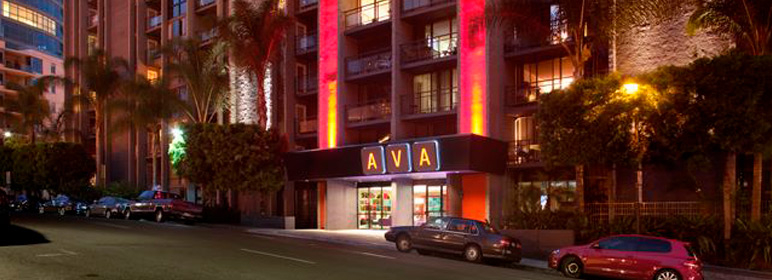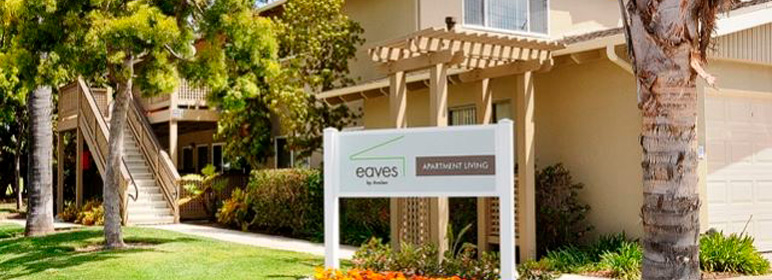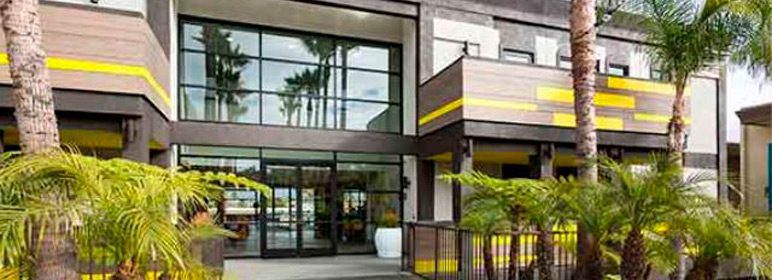Raising the Bar: AvalonBay Communities in Pursuit of Excellence in Benchmarking
For some multifamily property owners, energy management may simply be a task to check off the to-do list before moving on to other issues. At AvalonBay Communities, Inc., they recognize the substantial opportunities for energy and cost savings by benchmarking their properties. As owners of 284 multifamily communities across the United States, including nine properties in San Diego County, AvalonBay has a long track record of leadership in sustainability initiatives and incorporating benchmarking, both voluntarily or when mandatory, into its corporate responsibility program as an industry best practice.
In 2014, AvalonBay launched a small pilot benchmarking program monitoring building energy and water consumption. In 2016, the pilot was extended to multiple properties, and due to its success, the benchmarking program will be fully implemented across their portfolio by 2017 to assist in achieving AvalonBay’s goal of a 15 percent reduction in both energy and water use intensity by 2020. AvalonBay’s corporate responsibility team tracks building performance data using the sustainability and energy management software Measurabl to target communities for retrofits, as well as evaluating progress in achieving their 2020 objectives.
By 2016, AvalonBay reduced their energy use intensity by 10.9 percent and water use intensity by 6.2 percent, as compared to their 2013 baseline. An advantage of the Measurabl platform is that it communicates directly with ENERGY STAR® Portfolio Manager®, the industry-leading building benchmarking tool, to automate and streamline the processes for utility data collection, quality assurance, certification and reporting. This not only decreases the time necessary to gather and report energy and water consumption metrics, but also ensures increased data quality through direct utility data uploads.
Utilizing Measurabl as a tool for data aggregation, AvalonBay reports to benchmarking programs, such as the City of Seattle and GRESB, in addition to publishing their own annual in-house benchmarking reports. As these reporting bodies have different requirements, Measurabl helps ensure the data AvalonBay reports is accurate and formats the information for each type of report.
Understanding a property’s performance, tracking retrofit savings and generating reports can pose a significant challenge to multifamily property owners and managers. That’s because obtaining whole-building data can be difficult as some state and city policies prevent landlords from collecting tenant consumption data, and only common area data is available.
Despite the challenges of acquiring whole-building data for benchmarking to inform energy efficiency retrofits, AvalonBay pursues opportunities to improve its overall portfolio performance based on the data it can access. Utilizing available benchmarking data, the corporate responsibility team can better assess communities and select specific pilot projects to improve performance. One such targeted pilot, an LED lighting retrofit, was so successful that it will be expanded to nearly the entire portfolio by 2020. In 2015, AvalonBay completed 22 LED retrofit projects with an annual energy savings of more than $280,000, with a simple payback period of only 3.8 years. They completed an additional 44 LED lighting retrofit projects in 2016, with 31 more retrofits planned for 2017. Overall, the LED retrofits completed as of 2016 provide $1 million and 6.9 million kilowatt-hours in annual energy savings, which is equivalent to removing more than 1,000 cars from roadways for one year.
Currently, certain multifamily property owners in California are able to make better, fact-based decisions regarding energy efficiency upgrades. Legislation in California, Assembly Bill (AB) 802, aims to reduce the barrier to whole-building energy usage information through aggregated data access provisions that went into effect January 1, 2017. These provisions allow multifamily property owners whose buildings have five or more utility accounts to request whole-building aggregated electric and gas consumption information from their local utility.
These data access provisions are provided ahead of a larger statewide effort to launch an energy benchmarking and disclosure program for commercial and multifamily properties in California greater than 50,000 sq. ft. Specifically, once all of AB 802’s benchmarking and disclosure program provisions are in effect, multifamily properties in California over 50,000 sq. ft. and with more than 17 units will be required to benchmark and disclose energy metrics to the California Energy Commission using Portfolio Manager®.
Owners and managers of such properties within San Diego County can participate in the Center for Sustainable Energy’s Benchmarking Coach program. The program provides no-cost, one-on-one technical support to those looking to get started on benchmarking and identifying energy efficiency and savings opportunities at their properties ahead of these mandates.
CSE’s Benchmarking Coach program is open to all commercial, public or multifamily property owners or managers within San Diego County. For more information, email Benchmarking@EnergyCenter.org or call (858) 244-4849.
(Updated July 2017.)








